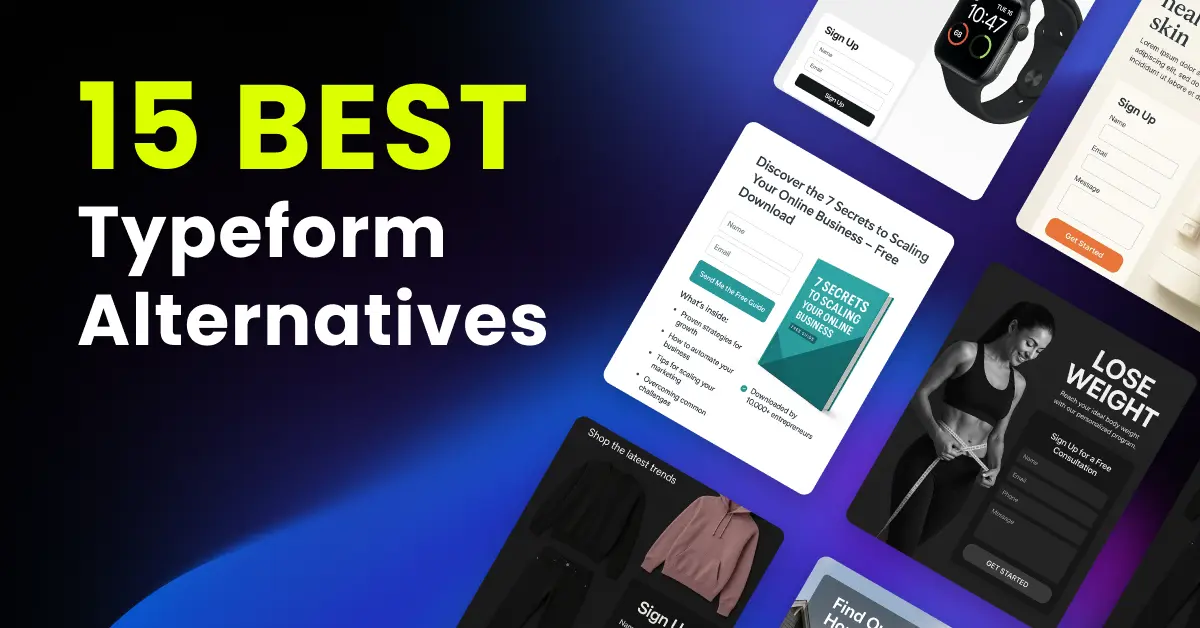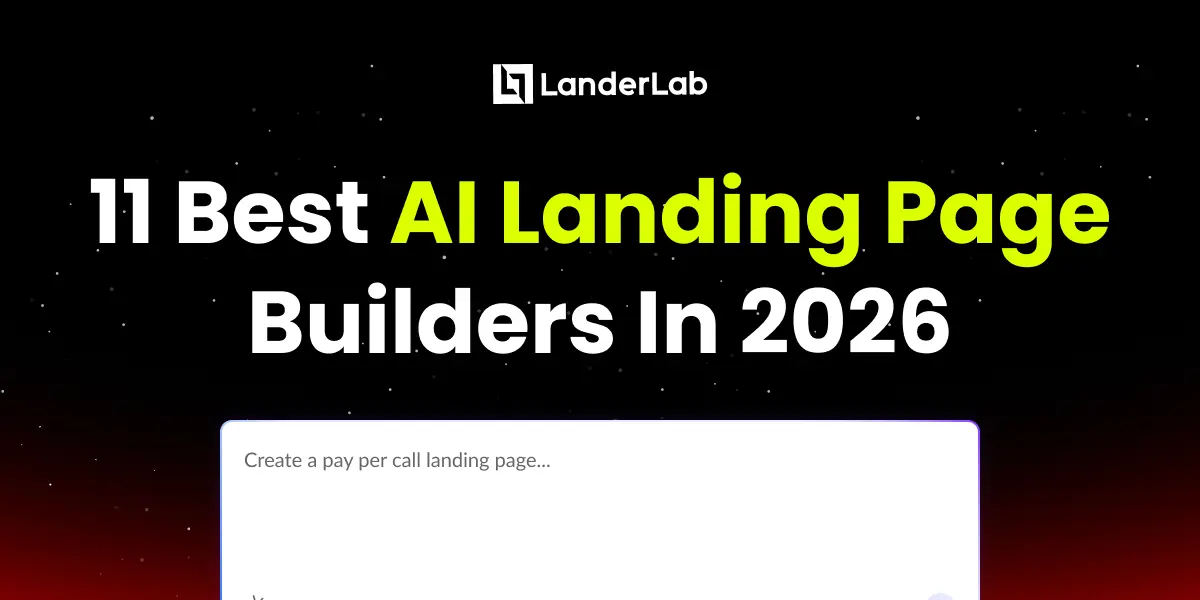Healthcare has gone digital, and your marketing needs to catch up. 77% of patients research providers online before booking.
That means your website, ads, and local presence are just as important as your front desk.
In this guide, I’ll show you 9 practical strategies to help you attract more patients, earn their trust, and turn online traffic into real appointments.
What Is Healthcare Digital Marketing?
Healthcare digital marketing is how medical practices, hospitals, and healthcare professionals attract, educate, and engage patients using online channels.
Instead of relying only on referrals or word of mouth, it uses tools like websites, social media, search engines, and email marketing to connect with today’s healthcare consumers.
A good healthcare marketing strategy helps you:
- Reach specific patient demographics
- Improve patient engagement
- Increase brand visibility
- Turn website visitors into new patients
It’s about building trust, sharing accurate health-related information, and making it easy for patients to take the next step, just like booking an appointment or asking a question.
9 Healthcare Digital Marketing Tips and Examples
1. Turn Healthcare Services Into Searchable Patient Solutions
Most healthcare websites list services like “Cardiology,” “Family Medicine,” or “Physical Therapy.”
But today’s healthcare consumers don’t always search for services that way. They search for symptoms, conditions, or questions like:
- “Why does my knee hurt when I run?”
- “Back pain specialist near me”
- “How to treat adult acne”
To connect with potential patients, healthcare providers should create dedicated landing pages or simple websites that speak directly to those needs.
Here’s what that looks like in action:
Instead of just saying “We offer dermatology,” try a page titled “Acne Treatment for Teens in Dallas”
Include basic info, treatment options, insurance accepted, and a clear call-to-action like “Book a Consultation”
This approach helps you rank on search engines, reach specific patient demographics, and build trust faster.
Tools like LanderLab make it easy for healthcare marketers to build pages like this without coding. Just pick a template, update the text, and you’re ready to go.
2. Make It Easy for Patients to Book Online
Today’s healthcare consumer expects convenience. If your website only offers a phone number or a slow “contact us” form, you’re missing out on potential patients.
Instead, use digital marketing strategies that support real-time appointment booking or quick callback requests. This small change can dramatically improve patient acquisition and satisfaction.
Why it matters:
- Over 40% of healthcare appointments are booked after hours
- Many patients prefer to book through mobile devices
- A slow or confusing process often leads them to look elsewhere
To improve the experience:
- Add a short, mobile-friendly form with fields like name, reason for visit, and preferred time
- Let patients choose between a live chat, a callback, or a secure booking tool
- Keep the steps simple and respectful of patient privacy and consent
3. Show Up First in Local Searches With Google Business Profile
When someone searches for a doctor, clinic, or specialist near them, they often turn to Google.
That’s why your Google Business Profile (GBP) is one of the most powerful (and free) tools in your healthcare digital marketing strategy.
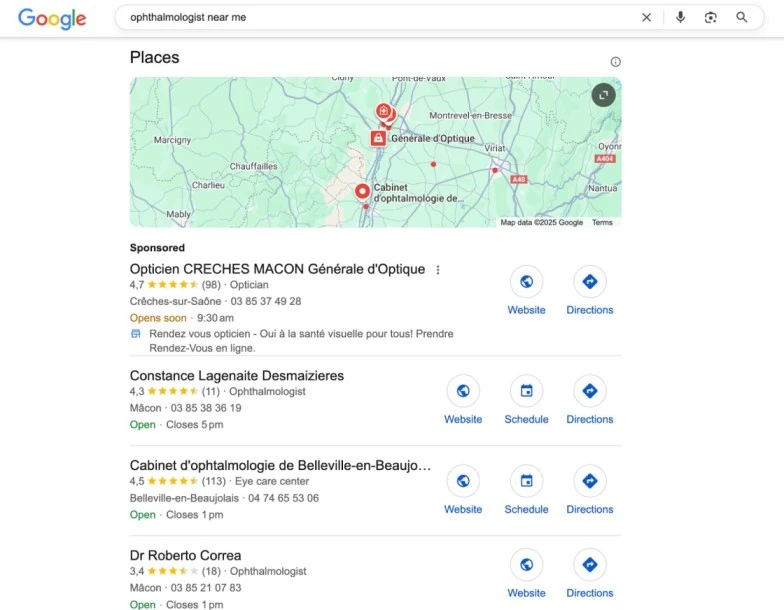
A fully optimized profile helps you:
- Appear in the local map pack when patients search “urgent care near me” or “family doctor in [city]”
- Boost visibility for specific healthcare services you offer
- Build trust by showing reviews, photos, and accurate contact info
Make sure your listing includes:
- Up-to-date hours and phone number
- Insurance accepted
- Photos of your facility and staff
- Categories and services that reflect your specialties
- Patient reviews (and responses from your team!)
For healthcare providers, this kind of visibility improves patient engagement by helping people find the right care, right when they need it.
4. Stay Visible Where Patients Now Search (Even on ChatGPT)
Digital marketing in healthcare is changing fast. More patients are now turning to AI tools like ChatGPT to search for health information, find providers, or ask about symptoms before they ever visit a website.
In fact, according to Pew Research, 34% of U.S. adults have used ChatGPT, and many are asking health-related questions like:
- “Best physical therapist near me”
- “What does a cardiologist do?”
- “How to treat chronic back pain?”
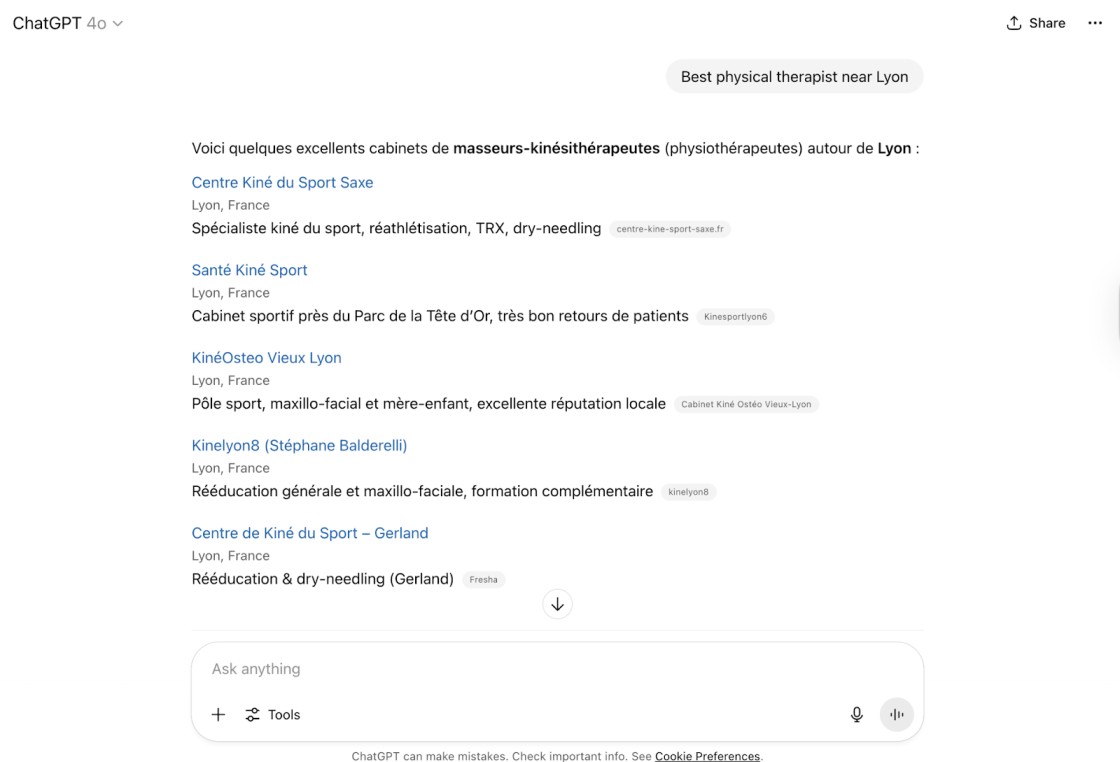
As large language models (LLMs) like ChatGPT and Google Gemini become part of everyday search, your healthcare digital marketing strategy should adapt too.
Here’s how healthcare organizations can stay visible:
- Publish clear, educational content on common health topics
- Use relevant keywords and location terms in your answers
- Make sure your landing pages are accurate, readable, and easy to reference
- Answer real patient questions on your blog or FAQ section (LLMs love structured, helpful content)
This helps ensure your practice is not only visible on search engines like Google, but also through AI-powered tools patients are starting to trust for first-line answers.
It’s a growing part of healthcare digital marketing, and an easy way to reach today’s healthcare consumer early in their patient journey.
5. Use Short Videos to Build Trust and Humanize Your Brand
Before choosing a doctor or booking a visit, many patients want to see who they’re dealing with. A friendly face, a calm explanation, or a short walkthrough of your clinic can make all the difference.
That’s where short-form video becomes a powerful part of your healthcare digital marketing strategy.
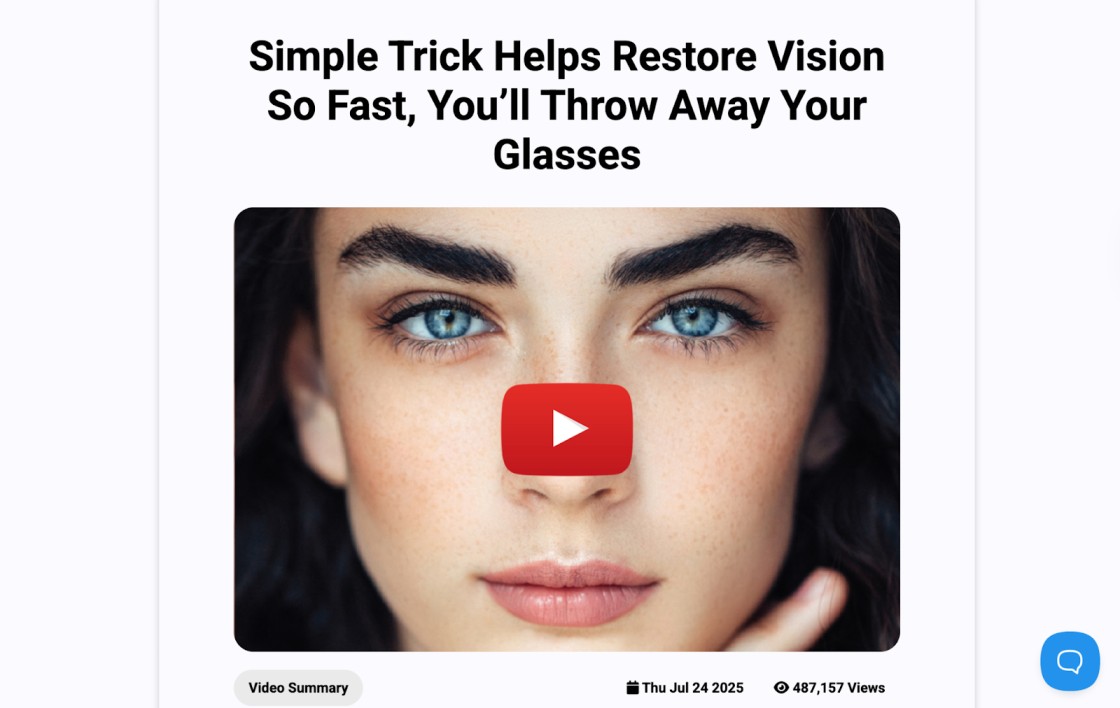
A simple video recorded on a phone can help you:
- Introduce your providers and staff
- Explain common procedures or treatment options
- Answer frequently asked patient questions
- Share patient stories or success outcomes (with consent)
Why it works:
- Video feels personal; it builds connection faster than text
- It helps increase patient engagement before they even walk through the door
- You can share it across social media platforms, landing pages, and even email campaigns
For healthcare professionals, this is a great way to reduce patient anxiety and build a positive online presence, especially in specialties like mental health, pediatrics, or dentistry where trust is everything.
6. Encourage Referrals With Friendly, Patient-Focused Prompts
Even with all the new digital channels, word-of-mouth referrals are still one of the most effective healthcare marketing strategies.
The key is to make it easy (and worth it) for patients to recommend you.
Here’s how to do it:
- Add a simple message to your appointment confirmation emails:
“Love your experience? Refer a friend and help them get great care too.” - Include referral prompts on your website or patient portal
- Offer small thank-yous, like a discount on a follow-up visit or a free wellness tip sheet
- Make sure your online reputation supports your ask—with positive reviews and patient testimonials clearly visible
It’s low-cost, low-effort, and high-impact for long-term patient acquisition.
7. Build Trust With Real Patient Testimonials and Proof
In the healthcare industry, trust is everything. Patients want to feel safe, understood, and confident in their choice before booking an appointment.
One of the most effective ways to build that trust is by showcasing real patient stories and feedback.

Here are some ways to do it:
- Add written or video patient testimonials (with permission) to your website and landing pages
- Show review ratings from Google or Healthgrades
- Highlight provider credentials, awards, or years of experience
- Include insurance logos and health system affiliations to boost credibility
- Share educational content like health tips, FAQs, or wellness checklists to demonstrate your expertise
These elements give potential patients the reassurance they need to move forward—especially in specialties like surgery, mental health, or chronic care.
8. Post Educational Content Across Social Media and Online Channels
Instead of just publishing a blog post or uploading one video to your website, share your content across multiple digital platforms where your target audience spends time—like Facebook, Instagram, YouTube, and email.
Why it matters:
- Helps improve brand visibility and patient engagement
- Builds trust over time with healthcare consumers who are still in the research phase
- Supports consistent patient education without always selling
- Reinforces your reputation as a reliable source of health-related information
Content ideas to post:
- Simple wellness tips and reminders
- Answering common patient questions (in video or carousel form)
- Patient stories and testimonials
- Short clips from your providers explaining procedures or treatment options
By distributing this content regularly across social media platforms and digital channels, healthcare providers stay top of mind, attract more qualified traffic, and build stronger relationships with specific patient demographics.
9. Create Campaign-Specific Landing Pages to Boost Conversions
Most healthcare websites treat every visitor the same, but people looking for urgent care don’t want to scroll through general wellness tips.
That’s why creating campaign-specific landing pages is an effective digital marketing strategy in healthcare.
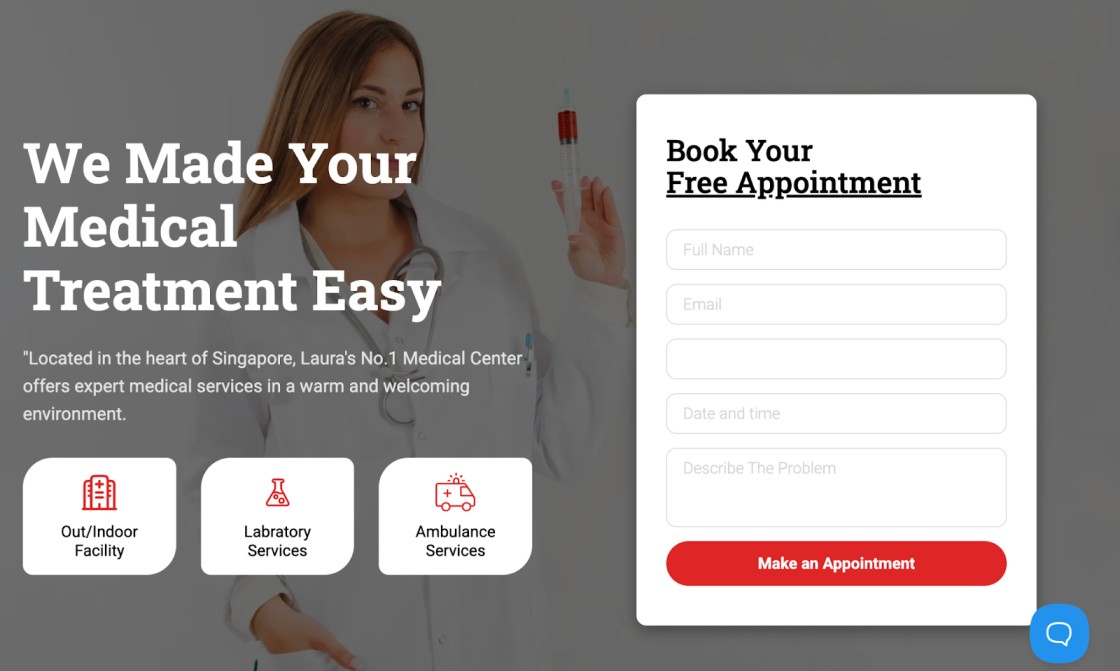
Instead of relying only on your homepage or service list, design dedicated pages for:
- Seasonal campaigns (e.g., flu shots, sports physicals)
- Condition-specific services (“Chiropractic Care for Lower Back Pain”)
- Patient demographics (“Prenatal Care for First-Time Moms”)
- Paid ad traffic (e.g., Facebook ad for “Book a Free Skin Cancer Screening”)
These pages can:
- Increase conversions by 2x–3x (source: Landingi)
- Help you rank higher for medical SEO keywords
- Give patients a clear, low-stress way to take the next step
And you don’t need a dev team.
With tools like LanderLab, healthcare professionals and marketers can quickly launch mobile-friendly, HIPAA-conscious landing pages designed for trust, speed, and simplicity.
Ready to Turn Your Healthcare Marketing Into Real Patient Growth?
Start turning more clicks into patient appointments.
With LanderLab, you can:
- Build fast, conversion-ready landing pages for any healthcare service
- Customize content for different audiences (no coding required)
- Share pages across ads, email, or social media to track real results
Whether you’re a solo clinic or a growing health system, LanderLab gives you the tools to attract more patients and build long-term trust.
Start Building Healthcare Landing Pages
Create high-converting healthcare landing pages in minutes with LanderLab.
Capture patient leads, streamline appointment bookings, and grow your practice without coding.
FAQs
What makes a digital marketing strategy effective in healthcare?
An effective digital marketing strategy combines search engine optimization, content marketing, and social media marketing to help you attract patients, build trust, and improve patient outcomes. It should also respect patient consent and adapt to evolving technology.
Should I hire a healthcare digital marketing agency or use my own tools?
If you have time and deep industry knowledge, DIY tools like landing page builders can work well. But a healthcare digital marketing agency offers specialized expertise and can manage your marketing efforts across multiple digital marketing tools, especially for larger practices or health systems.
How can digital marketing improve patient satisfaction and brand visibility?
By using medical SEO, personalized content, and contextual advertising, you help patients find the right care faster. This improves patient satisfaction, boosts patient lifetime value, and supports increasing brand awareness for your healthcare brand.

